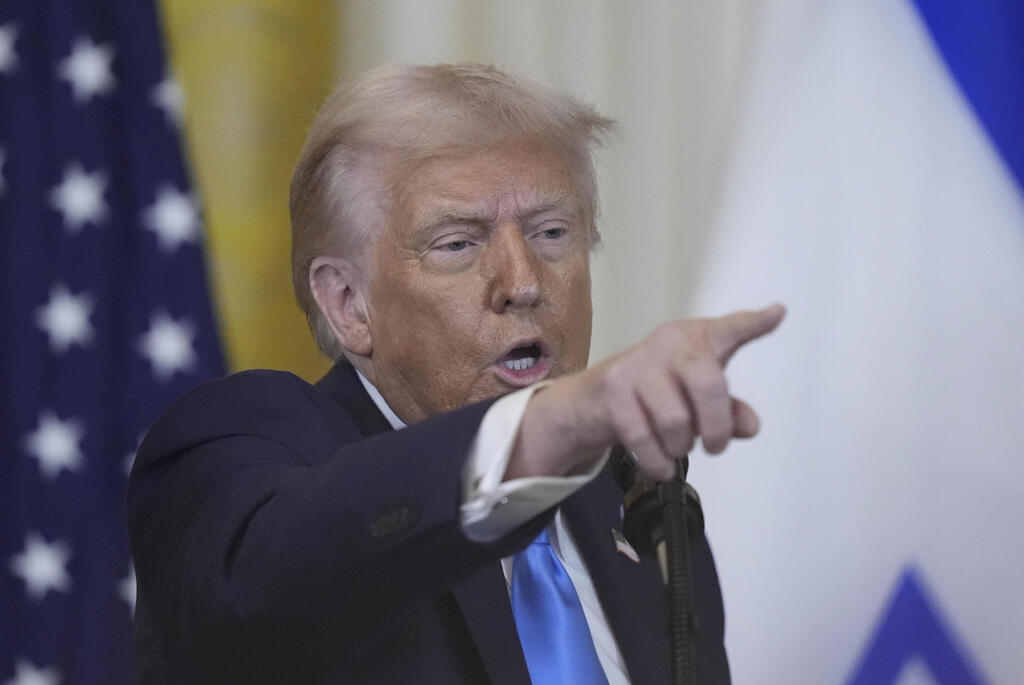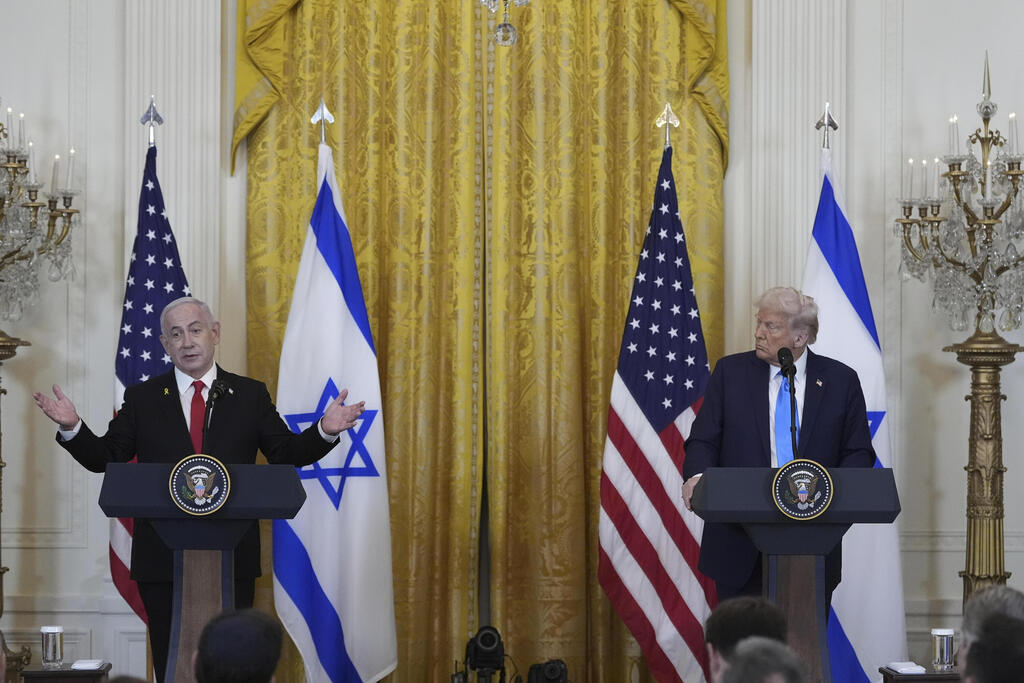Moments before Prime Minister Benjamin Netanyahu and U.S. President Donald Trump took the stage for their joint press conference, one of Netanyahu’s aides described what had just unfolded behind closed doors as “crazy”—seemingly in a good way. That description also fit the 40-minute press conference that followed, dominated by Trump’s sweeping vision for Gaza and the Middle East.
The event generated a flurry of headlines, with different factions seizing on the statements that suited them. Israeli far-right leaders, including Finance Minister Bezalel Smotrich and settler activists, celebrated Trump’s remarks. Former U.S. Ambassador to Israel David Friedman even suggested tongue-in-cheek names for a newly rebuilt Gaza: Mar-a-Gaza or Gaza-Lago.
A White House welcome for Prime Minister Benjamin Netanyahu ahead of his meeting with Donald Trump
(Video: GPO)
At the heart of Trump’s plan is a proposal to remove Gaza’s population and relocate them across the world. He repeatedly suggested that the U.S. could temporarily take control of Gaza—possibly even deploying American troops—before turning the enclave into what he called “the Riviera of the Middle East.”
When pressed by reporters on who would ultimately live there, Trump, appearing enamored with his own vision, responded, “They [Palestinians] can return, but people from around the world could also move there. We will create thousands of jobs and turn it into a thriving place.”
Asked about his previous Israeli-Palestinian peace plan, which had included the creation of a Palestinian state, Trump said, “A lot has changed” since he left office four years ago.
Trump teases possible U.S. endorsement of Israeli sovereignty in West Bank
One of the most significant moments of the press conference came when a reporter asked Trump whether he would support Israeli sovereignty over the West Bank. “We are discussing it with many of your representatives. People love the idea, but we haven’t taken a position yet. We’ll probably have an announcement in the next four weeks,” Trump said.
His response suggested that Netanyahu had raised the issue in their private meeting—potentially as a signal to his far-right coalition partners, including Smotrich and Itamar Ben-Gvir, amid ongoing domestic political tensions.
Throughout the event, Trump and Netanyahu exchanged effusive praise. When asked about their at-times rocky relationship, Trump replied, “Mostly ups.” He described Netanyahu as a “great leader” and a “friend,” while Netanyahu thanked Trump for his leadership, suggesting that the former president—not Biden—was the real driving force behind recent hostage deals. “You and I are a winning team,” Trump declared.
Get the Ynetnews app on your smartphone: Google Play: https://bit.ly/4eJ37pE | Apple App Store: https://bit.ly/3ZL7iNv
Netanyahu took the opportunity to contrast Trump’s policies with those of his predecessor Joe Biden. “You are the greatest friend Israel has ever had in the White House,” Netanyahu told Trump, thanking him for resuming arms shipments that had been delayed under Biden. He reiterated that U.S.-Israel cooperation is key to success but warned that “when there are major gaps, it just doesn’t work.”
Trump, for his part, doubled down on his demand for Hamas to release all hostages, warning the group, “If they don’t, we will be more violent.” He also pledged to visit Israel, Gaza and Saudi Arabia, while Netanyahu expressed confidence that a normalization deal with Riyadh was within reach. “Not only is it possible, it will happen,” Netanyahu said.
Trump appeared to put Saudi Arabia in an awkward position when he claimed the kingdom was not demanding a Palestinian state as a condition for normalization with Israel. Riyadh quickly issued a statement reaffirming that it would not establish relations with Israel without a Palestinian state, raising questions about the feasibility of Trump’s diplomatic vision.
Netanyahu welcomed Trump’s “outside-the-box thinking,” though he also reiterated Israel’s war objectives, including the military and political dismantling of Hamas. “You see things others refuse to see. You say things others refuse to say,” he told Trump.
At times, the press conference felt surreal. Was Trump laying out an implausible fantasy, or was he, as his supporters believe, a visionary reshaping the Middle East? Whether his plan for Gaza is viable remains to be seen, but for now, his latest grand proposal has ignited global debate.





